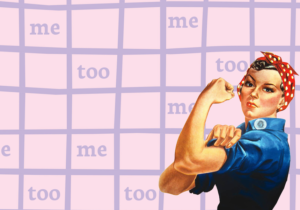
I am extremely thankful for my university degree – an experience which has improved my life in many ways.
My critical thinking abilities continue to evolve. I am now (almost) capable of seeing the multitudes of complexities inherent in numerous social and economic issues. Thankfully, my political science and history teachers were a gifted, intelligent, and helpful bunch. Without their academic interventions, my analytical abilities would have never progressed beyond simplistic, high-school-level sloganeering.
My university experience has also advanced my writing skills. I no longer write rock music poetry, or strive to make pallid attempts at copying Kerouac, Hesse, and other literary favourites. My fiction is still in a developmental mode, but my creative writing instructors gifted me with much valuable instruction on how to create original fiction and poetry. I am slowly developing a distinctive voice in my fiction. In 50 years, I hope to have my novel completed.
There were many incredible social benefits found at my university. I made several friends from a diverse cast of backgrounds, hosted a radio show at our campus/community station, and wrote articles for the university’s newspaper.
There’s no doubt in my mind – attending university was the right thing for me to do. However, since 2005, I’ve been saddled with a massive student debt. Unfortunately, I’ve been unable to find a good paying job to sufficiently cover the overdue balance, and there often seems to be no escape from my economic turmoil. If the regular payments for my federal loan aren’t met, I could be threatened with a court action, or wage garnishment. In the meanwhile, I’ve had to borrow money from my bank to pay off the provincial BC loan.
There are many of us throughout the country who are living in this exact situation. While I acknowledge that the federal and provincial student loans were always my responsibility, the costs have been excessive.
I’ve had to endure several radical cost-cutting arrangements. Every bloody dime has to be accounted for. Affordable housing in bubble-hungry Vancouver remains the most outstanding issue. Consequently, I’ve been living in substandard housing ridden with bedbugs, rats, and people with …uh…social issues.
I don’t believe postsecondary education should be free. My teachers were excellent, informative, and longsuffering, and each of them deserved an excellent wage for putting up with me. Still, the price I’ve had to pay for taking provincial and federal student loans is beyond comprehension.
An interesting side note, Newfoundland and Labrador made
university tuition free in the 1960s
. In 2010, students in
Newfoundland and Labrador still paid the lowest fees in the country at an average of
$2,624 per year. British Columbia’s rate averaged at $4,802, while students in Ontario paid the highest rate at $6,307 per year.
Tuition fees continue to skyrocket in the majority of the country’s postsecondary institutions – a double whammy for the majority of Canadian postsecondary students, who are required to pay high tuition costs.
Over a 40-year period, successive Liberal and Conservative governments gradually reduced their share of tuition expenditures. In 1977, the government once paid for 84% of university tuition fees. By 2007, our lovely elected officials were only shelling-out 57.1% for postsecondary tuition, leaving students with an ever increasing burden of debt. The average yearly tuition fee in Canada in 2010 amounted to $5,000 +, which doesn’t include the price of books, room and board, and other costs related to studies. At the end of a degree program, many students will owe the government almost $50,000 + in loans.
Student loan debtors are frequently harassed and bullied to pay their loans. In Douglas Welbanks’ book
Julius Seizure, the author outlines the grisly horrors many Canadian student loan recipients face after graduation. Welbanks also transcribes a few genuine shocking over-the-phone conversations between collection agencies, government representatives, and student debtors – the exact one-sided, condescending discussions I’ve sometimes encountered. The author also highlights a significant change to bankruptcy laws which affect Canadian student debtors, who are unable to claim bankruptcy for ten years. This law came about after certain legal amendments were made in the Canadian Parliament between 1997 and 1998.
In 2000, the Canadian Federation of Students unsuccessfully challenged the10-year bankruptcy ruling. On June 30, 2005, the Honourable Justice Gordon Sedgwick of the Ontario Superior Court decided student loan debtors didn’t qualify for legal protection from discrimination under the
Charter of Rights.
Essentially, the rights of student debtors are surpassed by their financial obligations.
This article isn’t meant to discourage prospective or current students from attending college. Future artists, philosophers, historians, writers, doctors, lawyers, teachers… keep plugging away. Even if your education doesn’t immediately result in employment related to your education, a degree or diploma will open many unexpected doors. However, every student should be aware of the debts incurred after their costly education is completed.
Before enrolling into a program, ask yourself if this course is essential. I don’t believe everyone should find the right course to land a job paying one million dollars per year. Rather, each student should register into a program with the idea of accentuating one’s existing talents, and to seek and build-upon new accomplishments. Your education should have a primary focus from the onset, but new, challenging adventures should also be included into the package.
If you decide to take on a student loan, make sure you budget your money and time wisely. Don’t be surprised if you need to get a part time job to cover additional costs, since our national tuition rates are continuing to accelerate. If you’re able to attend university or college without taking either a federal or provincial student loan, my overall advice is stay debt free and pay your own way.
Affordable, postsecondary education should be accessible for all Canadians, regardless of their economic and social stature. Therefore, the current loan system needs an immediate transformation – a total ‘rethink’ if you will.
The federal and provincial governments should work together to construct a national cap over Canada’s volcanic tuition fees, slash the excessive interest fees off student loans, and increase federal and provincial subsidies in postsecondary education back to the levels enjoyed in the 1970s.
If you believe this to be unrealistic, consider this: an educated, debt-free populace will assist in improving the nation’s economy.
 I am extremely thankful for my university degree – an experience which has improved my life in many ways.
My critical thinking abilities continue to evolve. I am now (almost) capable of seeing the multitudes of complexities inherent in numerous social and economic issues. Thankfully, my political science and history teachers were a gifted, intelligent, and helpful bunch. Without their academic interventions, my analytical abilities would have never progressed beyond simplistic, high-school-level sloganeering.
My university experience has also advanced my writing skills. I no longer write rock music poetry, or strive to make pallid attempts at copying Kerouac, Hesse, and other literary favourites. My fiction is still in a developmental mode, but my creative writing instructors gifted me with much valuable instruction on how to create original fiction and poetry. I am slowly developing a distinctive voice in my fiction. In 50 years, I hope to have my novel completed.
There were many incredible social benefits found at my university. I made several friends from a diverse cast of backgrounds, hosted a radio show at our campus/community station, and wrote articles for the university’s newspaper.
There’s no doubt in my mind – attending university was the right thing for me to do. However, since 2005, I’ve been saddled with a massive student debt. Unfortunately, I’ve been unable to find a good paying job to sufficiently cover the overdue balance, and there often seems to be no escape from my economic turmoil. If the regular payments for my federal loan aren’t met, I could be threatened with a court action, or wage garnishment. In the meanwhile, I’ve had to borrow money from my bank to pay off the provincial BC loan.
There are many of us throughout the country who are living in this exact situation. While I acknowledge that the federal and provincial student loans were always my responsibility, the costs have been excessive.
I’ve had to endure several radical cost-cutting arrangements. Every bloody dime has to be accounted for. Affordable housing in bubble-hungry Vancouver remains the most outstanding issue. Consequently, I’ve been living in substandard housing ridden with bedbugs, rats, and people with …uh…social issues.
I don’t believe postsecondary education should be free. My teachers were excellent, informative, and longsuffering, and each of them deserved an excellent wage for putting up with me. Still, the price I’ve had to pay for taking provincial and federal student loans is beyond comprehension.
An interesting side note, Newfoundland and Labrador made university tuition free in the 1960s. In 2010, students in Newfoundland and Labrador still paid the lowest fees in the country at an average of $2,624 per year. British Columbia’s rate averaged at $4,802, while students in Ontario paid the highest rate at $6,307 per year.
Tuition fees continue to skyrocket in the majority of the country’s postsecondary institutions – a double whammy for the majority of Canadian postsecondary students, who are required to pay high tuition costs.
Over a 40-year period, successive Liberal and Conservative governments gradually reduced their share of tuition expenditures. In 1977, the government once paid for 84% of university tuition fees. By 2007, our lovely elected officials were only shelling-out 57.1% for postsecondary tuition, leaving students with an ever increasing burden of debt. The average yearly tuition fee in Canada in 2010 amounted to $5,000 +, which doesn’t include the price of books, room and board, and other costs related to studies. At the end of a degree program, many students will owe the government almost $50,000 + in loans.
Student loan debtors are frequently harassed and bullied to pay their loans. In Douglas Welbanks’ book Julius Seizure, the author outlines the grisly horrors many Canadian student loan recipients face after graduation. Welbanks also transcribes a few genuine shocking over-the-phone conversations between collection agencies, government representatives, and student debtors – the exact one-sided, condescending discussions I’ve sometimes encountered. The author also highlights a significant change to bankruptcy laws which affect Canadian student debtors, who are unable to claim bankruptcy for ten years. This law came about after certain legal amendments were made in the Canadian Parliament between 1997 and 1998.
In 2000, the Canadian Federation of Students unsuccessfully challenged the10-year bankruptcy ruling. On June 30, 2005, the Honourable Justice Gordon Sedgwick of the Ontario Superior Court decided student loan debtors didn’t qualify for legal protection from discrimination under the Charter of Rights.
Essentially, the rights of student debtors are surpassed by their financial obligations.
This article isn’t meant to discourage prospective or current students from attending college. Future artists, philosophers, historians, writers, doctors, lawyers, teachers… keep plugging away. Even if your education doesn’t immediately result in employment related to your education, a degree or diploma will open many unexpected doors. However, every student should be aware of the debts incurred after their costly education is completed.
Before enrolling into a program, ask yourself if this course is essential. I don’t believe everyone should find the right course to land a job paying one million dollars per year. Rather, each student should register into a program with the idea of accentuating one’s existing talents, and to seek and build-upon new accomplishments. Your education should have a primary focus from the onset, but new, challenging adventures should also be included into the package.
If you decide to take on a student loan, make sure you budget your money and time wisely. Don’t be surprised if you need to get a part time job to cover additional costs, since our national tuition rates are continuing to accelerate. If you’re able to attend university or college without taking either a federal or provincial student loan, my overall advice is stay debt free and pay your own way.
Affordable, postsecondary education should be accessible for all Canadians, regardless of their economic and social stature. Therefore, the current loan system needs an immediate transformation – a total ‘rethink’ if you will.
The federal and provincial governments should work together to construct a national cap over Canada’s volcanic tuition fees, slash the excessive interest fees off student loans, and increase federal and provincial subsidies in postsecondary education back to the levels enjoyed in the 1970s.
If you believe this to be unrealistic, consider this: an educated, debt-free populace will assist in improving the nation’s economy.
I am extremely thankful for my university degree – an experience which has improved my life in many ways.
My critical thinking abilities continue to evolve. I am now (almost) capable of seeing the multitudes of complexities inherent in numerous social and economic issues. Thankfully, my political science and history teachers were a gifted, intelligent, and helpful bunch. Without their academic interventions, my analytical abilities would have never progressed beyond simplistic, high-school-level sloganeering.
My university experience has also advanced my writing skills. I no longer write rock music poetry, or strive to make pallid attempts at copying Kerouac, Hesse, and other literary favourites. My fiction is still in a developmental mode, but my creative writing instructors gifted me with much valuable instruction on how to create original fiction and poetry. I am slowly developing a distinctive voice in my fiction. In 50 years, I hope to have my novel completed.
There were many incredible social benefits found at my university. I made several friends from a diverse cast of backgrounds, hosted a radio show at our campus/community station, and wrote articles for the university’s newspaper.
There’s no doubt in my mind – attending university was the right thing for me to do. However, since 2005, I’ve been saddled with a massive student debt. Unfortunately, I’ve been unable to find a good paying job to sufficiently cover the overdue balance, and there often seems to be no escape from my economic turmoil. If the regular payments for my federal loan aren’t met, I could be threatened with a court action, or wage garnishment. In the meanwhile, I’ve had to borrow money from my bank to pay off the provincial BC loan.
There are many of us throughout the country who are living in this exact situation. While I acknowledge that the federal and provincial student loans were always my responsibility, the costs have been excessive.
I’ve had to endure several radical cost-cutting arrangements. Every bloody dime has to be accounted for. Affordable housing in bubble-hungry Vancouver remains the most outstanding issue. Consequently, I’ve been living in substandard housing ridden with bedbugs, rats, and people with …uh…social issues.
I don’t believe postsecondary education should be free. My teachers were excellent, informative, and longsuffering, and each of them deserved an excellent wage for putting up with me. Still, the price I’ve had to pay for taking provincial and federal student loans is beyond comprehension.
An interesting side note, Newfoundland and Labrador made university tuition free in the 1960s. In 2010, students in Newfoundland and Labrador still paid the lowest fees in the country at an average of $2,624 per year. British Columbia’s rate averaged at $4,802, while students in Ontario paid the highest rate at $6,307 per year.
Tuition fees continue to skyrocket in the majority of the country’s postsecondary institutions – a double whammy for the majority of Canadian postsecondary students, who are required to pay high tuition costs.
Over a 40-year period, successive Liberal and Conservative governments gradually reduced their share of tuition expenditures. In 1977, the government once paid for 84% of university tuition fees. By 2007, our lovely elected officials were only shelling-out 57.1% for postsecondary tuition, leaving students with an ever increasing burden of debt. The average yearly tuition fee in Canada in 2010 amounted to $5,000 +, which doesn’t include the price of books, room and board, and other costs related to studies. At the end of a degree program, many students will owe the government almost $50,000 + in loans.
Student loan debtors are frequently harassed and bullied to pay their loans. In Douglas Welbanks’ book Julius Seizure, the author outlines the grisly horrors many Canadian student loan recipients face after graduation. Welbanks also transcribes a few genuine shocking over-the-phone conversations between collection agencies, government representatives, and student debtors – the exact one-sided, condescending discussions I’ve sometimes encountered. The author also highlights a significant change to bankruptcy laws which affect Canadian student debtors, who are unable to claim bankruptcy for ten years. This law came about after certain legal amendments were made in the Canadian Parliament between 1997 and 1998.
In 2000, the Canadian Federation of Students unsuccessfully challenged the10-year bankruptcy ruling. On June 30, 2005, the Honourable Justice Gordon Sedgwick of the Ontario Superior Court decided student loan debtors didn’t qualify for legal protection from discrimination under the Charter of Rights.
Essentially, the rights of student debtors are surpassed by their financial obligations.
This article isn’t meant to discourage prospective or current students from attending college. Future artists, philosophers, historians, writers, doctors, lawyers, teachers… keep plugging away. Even if your education doesn’t immediately result in employment related to your education, a degree or diploma will open many unexpected doors. However, every student should be aware of the debts incurred after their costly education is completed.
Before enrolling into a program, ask yourself if this course is essential. I don’t believe everyone should find the right course to land a job paying one million dollars per year. Rather, each student should register into a program with the idea of accentuating one’s existing talents, and to seek and build-upon new accomplishments. Your education should have a primary focus from the onset, but new, challenging adventures should also be included into the package.
If you decide to take on a student loan, make sure you budget your money and time wisely. Don’t be surprised if you need to get a part time job to cover additional costs, since our national tuition rates are continuing to accelerate. If you’re able to attend university or college without taking either a federal or provincial student loan, my overall advice is stay debt free and pay your own way.
Affordable, postsecondary education should be accessible for all Canadians, regardless of their economic and social stature. Therefore, the current loan system needs an immediate transformation – a total ‘rethink’ if you will.
The federal and provincial governments should work together to construct a national cap over Canada’s volcanic tuition fees, slash the excessive interest fees off student loans, and increase federal and provincial subsidies in postsecondary education back to the levels enjoyed in the 1970s.
If you believe this to be unrealistic, consider this: an educated, debt-free populace will assist in improving the nation’s economy. 








